
Usually, when people think about their oral health, they think about the health of their teeth. Surely, teeth are very important and need to be healthy in order for a person to function properly and preserve his/her well-being. However, gums are a very important part of our oral area, even though these are often neglected.
If you experience bleeding or swollen gums, you are probably suffering from some sort of gum disease. However, many factor can trigger this state of affairs and, therefore, you are advised to react timely and prevent the situation from getting worse. So, in cases of any gum problems or abnormalities, seek medical assistance.About Oral and Gum Problems
Gum problems usually take place due to lack of proper dental and oral hygiene. Basically, once you neglect your oral health in such ways, you risk having numerous bacteria accumulating on the surface of your teeth. Then, the bacteria may spread onto the gums causing them to become red, swollen or bleeding. Many times, this kind of infection will not cause pain. Thus, many individuals fail to react to this condition, allowing it to get worse.
The main signs of gum infections can also manifest through changes in the way your teeth fit together during your biting or abnormalities during your wearing of dentures. Additionally, deep pockets may appear between the teeth and the gums. Moreover, bleeding may occur during toothbrushing, with the teeth appearing loose and shifting. Gingivitis, being the infection of the gums leading to bleeding in the area, among other symptoms, can trigger bad breath or bad taste in the mouth too.
During the course of gum infection the gums may start receding or may appear red, swollen and bleeding, being tender to any contact.
Note that gingivitis, when left untreated, usually evolves into an even more serious condition called periodontitis, leading to gums which may bleed and deteriorate, along with the jaw bone. This condition is painful and difficult to treat.
Mouth ulcers can also lead to problems regarding the gums. So, if you notice a sore appearing on the gums, with a white center and red edges, seek medical assistance. Sometimes, several sores may affect your gums, all at once. These ulcers may lead to bleeding gums too.
Additionally, one of the common side effects of chemotherapy is bleeding in the gum area, along with formation of ulcers inside the mouth.
Smokers are likely to suffer from bleeding gums, as well as people who chew tobacco. Namely, tobacco is capable of triggering numerous gum problems, some of which may manifest through bleeding.
Hormones may be responsible for bleeding gums too. During hormonal changes that menopause, puberty, menstruation or pregnancy brings, you might experience tender, swollen, red or sensitive gums. Also, if you suffer from menstrual gingivitis, your gums may show some signs of this condition right after your menstrual cycle, bleeding in some situations. Birth control may lead to bleeding gums as well.
Some other causes of bleeding gums include aggressive or violent toothbrushing, teeth infections, leukemia, vitamin K deficiency, improper flossing, use of blood thinners or the presence of certain bleeding disorders.
Recently obtained statistical information says that about ¾ of American adults older than 35 suffer from some kind of a gum disease. Fortunately, most of these cases involve gingivitis only. Nevertheless, from 5 to 15% of individuals are suffering from a more severe gum disease.
How To Prevent Gum Problems?
In order to keep the harmful microorganisms away from your mouth, make sure you brush your teeth at least two times a day. Yet, do not do this aggressively. Rather, be gentle and use a correct method of brushing, consulting with your dentist beforehand.
Flossing keeps your teeth safe and clean. Thus, floss correctly and regularly. Also, since your diet is very important for your overall health, include vitamin C and calcium-rich foods into your nutritional habit, preventing gum diseases and bleeding gums.
Give your body enough water by drinking about 8 glasses of water daily. This will keep your teeth clean and your body healthy. Smoking is out of the question since it will only make matters worse. Also, during your eating and drinking, avoid food and beverages which are too cold or too hot.
Finally, your stress levels may influence your susceptibility to gum diseases and bleeding gums. So, in order to stay free from stress and inflammation, learn how to relax and stay calm.
Home Treatment or Professional Help?
If you experience gum problems it is best to seek help from your dentist. The tips from above can help if the bleeding gum problem you are experiencing is not a serious one. However, if this is not the case, you will need professional assistance and treatment.
Do not take any medications, not even Aspirin, on your own, without having the drug recommended by a health professional. If the bleeding stays persistent for a longer period of time, contact your dentist. Also, if your current treatment fails to stop the bleeding, pay your dentist a visit.
Your dentist may ask you a series of question about your general lifestyle and dental hygiene in order to diagnose the condition you are suffering from. Also, blood tests, X-ray scans and some other tests may be necessary.
To sum up, bleeding gums may not have to be a serious problem. Nevertheless, you are advised to seek professional help if the condition stays present for a longer period of time, causing you pain and discomfort.


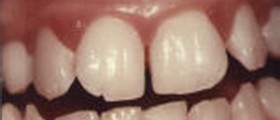
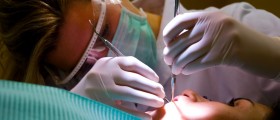
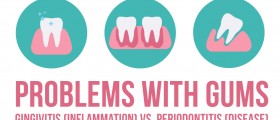

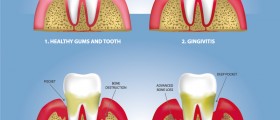
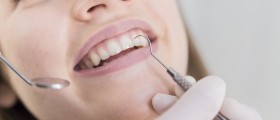

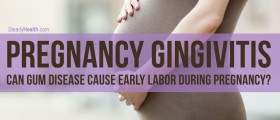
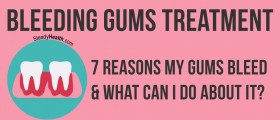

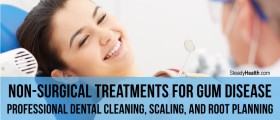

_f_280x120.jpg)

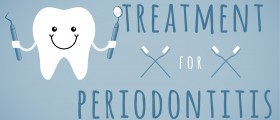
Your thoughts on this
Loading...